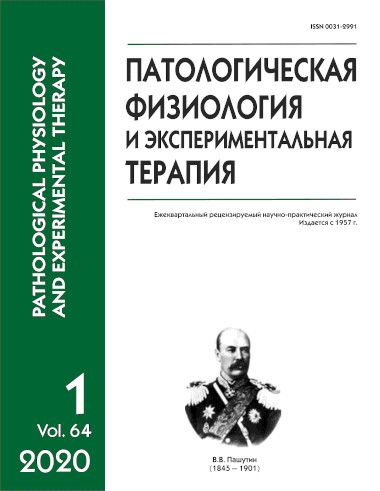Effect of the climatic and geographic factors of the North on adaptive reactions of the human body
Abstract
Summary. The review analyzes effects of climatic and geographic factors of the North on adaptive reactions of the human body in terms of pathological physiology and morphology. The aim was to study adaptive reactions of the human body in the north to external factors, which include severe light and cold conditions. Methods. Analysis of current literature on the issue under study. Results. The adaptive rearrangement of the body in the North involves expanding physiological boundaries of individual endocrine and metabolic parameters. Beyond the normal limits of a species, the capacity of body reserve decreases, which may lead to a pathology. Of a great importance are intra-annual fluctuations of hormones associated with the photoperiodism. The rhythmic organization of physiological processes has an adaptive nature as it helps preparing and adapting the body to environmental conditions to maintain its homeostasis. Adaptive changes are known to occur not only at the level of physiological systems but also at the ultrastructural level. Seasonal rhythms affect the structure and function of all systems in the human body. Many pathological processes are associated with development of desynchronosis. Mismatching biorhythms under the action of exogenous or endogenous factors is accompanied by disorders in the original chronostructural organization of physiological functions, which may leads not only to endocrine shifts but also to structural changes in organs. The review addresses the importance of taking into account the features of climatic and geographical factors of the North, which may induce pronounced changes in the structure and function of organs. The above-said is supported by the established imbalance evident as partial hypoplasia of the pancreatic exocrine apparatus associated with a pronounced endocrine component of the gland and stroma. These disorders are considered a prerequisite for development of abnormalities and may underlie congenital pancreatic pathology, such as fibrosis and diabetes. Conclusion. Long-acting stress factors lead to morphological rearrangements of organs and adaptive modifications of their structure.






